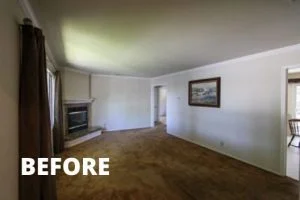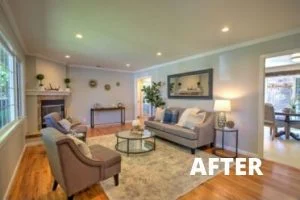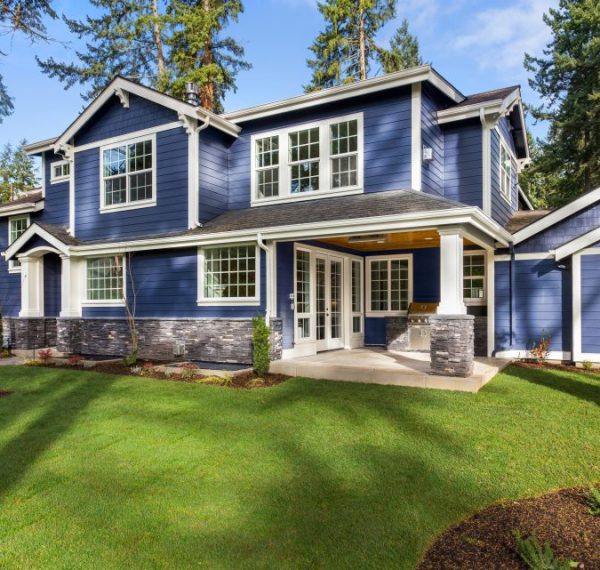You’ve decided it’s time to sell your house. It’s been a great home for you and your family, but now it’s time to upsize, downsize, move for work, or make way for some other upcoming lifestyle change.
It seems so easy to sell a house: just plunk a sign on the lawn and the bids start rolling in. That seems to be the case in the Bay Area, right?
But not so fast, —you’re not giving your house away. You want the best possible price for your family’s biggest asset.
There are three key factors to take into account when pulling the most value from your home. They are: Location, Condition, and Your Agent.
These three factors property handled will result in a successful property sale. And while each factor is important, only the last two are under your control.
Your Home’s Condition
The truth is that in our local market you can’t expect that repairing small items around the house is going to make a large difference in your sale price. Today’s buyers are paying a lot for homes and they have high expectations. If your home doesn’t give them a good feeling, the likelihood isn’t not going to make their shortlist.
Many times sellers are reluctant to make any updates to their homes before selling. They think that buyers have different styles, so let them choose what they want. The reality is that it’s not that easy to decorate a home and get it to look great— and most people don’t have an innate gift of knowing how to transform on outdated home into a contemporary home on a budget.
To attract these buyers, your home is going to need broad appeal and the right low-cost updates can do that. Turning a dark, outdated home into a bright, contemporary-feeling space doesn’t require a full remodel. However, it does take a good sense of design, creativity, and knowing what buyers in your market are looking for.
A home with the right amount of updates, a contemporary color palette, and staging that fits and accentuates the property will show and feel completely different than one that was listed as-is. It’s this difference that you want to capture to get the most out of your home sale.


Staging is the last but very important component that can be used to attract and impress buyers. The right staging will leave a good impression about your home with buyers. The right staging fits the home, shows the optimal use of space in rooms and areas of the home, and allows the buyers to envision what it would feel like living in it. Not all staging accomplishes these goals, its important to make sure that your staging is done thoughtfully and with care in order to real build value in the eyes of the buyers.
Your Agent
The reality is that your agent is the most integral part of all of this. A good agent who can leverage their experience and contacts will take ownership of getting your home’s condition where it needs to be, and handle all the important aspects of selling a home.
Pricing and Timing
The pricing strategy and timing of your home can have a large impact on the sale. Depending on your goals and the condition of the market, whether the market is appreciating or depreciating, your agent should be able to help you understand the right strategy that will help you get your home sold within your time frame for the highest possible price.
Marketing
Your agent’s top priority in getting your home sold is marketing it to get it exposed to as many buyers as possible and creating quality media that gets viewers attention. Beyond just listing it on the Multiple Listing Service (MLS) and holding a few open houses, your agent should include the following in their marketing plan:
Agents should produce professional photographs, video walkthrough, 3D-tour and floor plan, quality brochure highlighting the home’s features. These are going to be essential to get buyer’s attention and get them interested in viewing your home.
Open houses with at least 40 signs to drive more visitors and make the open house feel busier than other. The agent can also flyer the neighborhood and send out email blasts to their buyer database as well as to other agents announcing the listing and the open houses.
Internet portal syndication and Social Media advertising that targets buyers in a 25 mile radius who meet the demographic profiles of a buyer. Making sure your home is listed on sites like Zillow, Trulia, Realtor.com and ensuring that the data is consistent across all the sites is key.
Negotiation
Being an advocate for your home requires understanding your homes strengths and how it relates to other homes that have sold or are sitting on the market. Your agent should not only be adept at selling homes, but it is beneficial to have an agent that has some concurrent sales going on. This will enable your agent to have a pulse on how the market is reacting.
Knowing the local market, what homes have sold recently, what they sold for, and how they relate to your home is the information an agent requires in order to negotiate effectively. Also your agent should not be so busy that they are not available to take calls regarding your home. Agents who have too large an inventory of unsold homes, may find it difficult to get back to agents and buyers in a timely fashion and have the necessary conversations to determine buyer’s motivation.
A good agent knowns where a property stands and can command from buyers or other agents a good price by making a good case.
Conclusion
An experienced local agent who understands the current market and who can assist in showcasing your space, will save you time, money, and assist you in getting the best results from the sale of your home.






